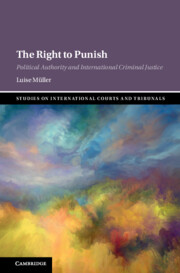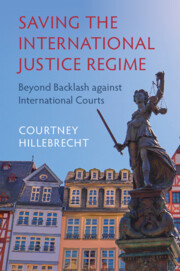The Right to Punish
What gives international courts the authority to punish individuals for international crimes? Through the lens of political philosophy, Luise Müller provides an original perspective on the justification of the authority of international criminal courts and tribunals. She argues that institutions of international criminal justice are permitted to pierce the sovereignty of states in order to punish high-profile politicians for genocide, crimes against humanity, war crimes, and other mass human rights violations. Their right to punish is justified by virtue of their function to deter mass violations of fundamental human rights. However, to legitimately exercise that right, international criminal justice institutions must fulfil two conditions: first, they must conduct criminal trials with the highest level of fairness; second, they must treat those who are subject to their authority as equals. This last condition can be satisfied by international criminal justice institutions by including procedures of democratic decision-making and democratic accountability.
- Offers a transdisciplinary perspective, weaving together literature in political philosophy, legal theory, and international relations
- Provides a rigorous analytical examination of the phenomenon of international criminal justice with numerous examples to aid understanding
- Develops a theory of legitimacy for the inspiring yet contested institution of the international criminal court
Product details
May 2024Hardback
9781009378130
198 pages
235 × 158 × 16 mm
0.43kg
Available
Table of Contents
- Acknowledgements
- 1. Introduction
- 2. The Permissibility of Punishment
- 3. The Authority to Punish
- 4. Legitimate Authority and International Institutions
- 5. Fairness, Equality, and Democratic Authority
- 6. Conclusion: Justice in the Real World.





